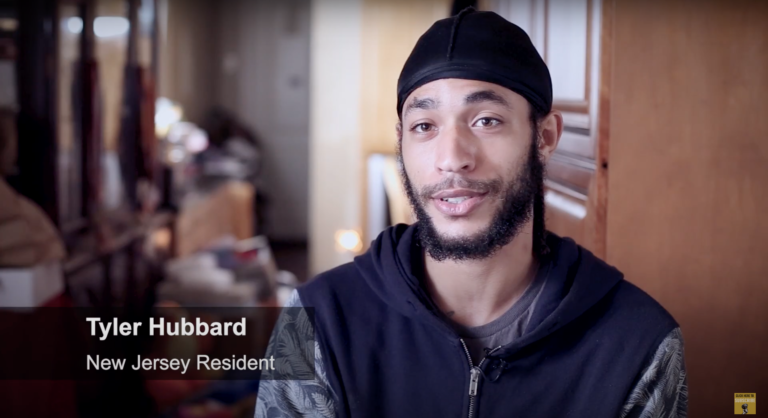Telling the Success Stories Benefitting from Bail Reforms
Positive outcomes associated with eliminating cash bail help in changing the narrative

In a short video published in 2018, Tyler Hubbard recounts being arrested and charged with second degree aggravated assault in New Jersey after getting into a “big argument” with his mother’s husband. “That was basically my first time ever in the system,” he says in the video. “I was mainly thinking, ‘I hope I don’t lose my job.’ I wouldn’t have anything when I got out.”
Until the mid-2010s, Hubbard’s bail would have been set at upwards of $100,000, money he says he couldn’t have pulled together. But in 2017, New Jersey became one of the first U.S. states to virtually do away with cash bail. And that meant Hubbard was able to return home while he awaited trial, and go back to his job as an automotive technician, without paying anything.
“I would’ve been there a lot longer if things weren’t how they are,” Hubbard says. “Since I’m not in jail, I can continue working, follow my dreams."
*****
Most jurisdictions in the country rely heavily on the assignment of cash bail, an amount of money that must be paid to secure release. While this cash amount is often assumed to be necessary collateral to ensure that an individual appears in court for their trial and remains arrest free, there is significant evidence that assigning cash bail is not necessary or effective in achieving either goal. Furthermore, it frequently results in the unnecessary jailing of people accused of minor offenses who are safe to be in the community pretrial.
Cash bail harms public safety, as it has been associated with a 6 to 9 percent increase in recidivism. Indeed, pretrial incarceration of more than 23 hours, which is often the result of unaffordable cash bail, has been tied to a “consistent and statistically significant increase in the likelihood of re-arrest.”
Cash bail undermines the presumption of innocence—the idea that people should not be subject to punishment for a crime until they are convicted. Today, more than 80 percent of people in U.S. jails under local authority have not been convicted and are therefore legally innocent of the crime of which they have been accused. Most of these people are safe to be in the community pretrial.
Cash bail criminalizes poverty and creates a two-tiered system of justice by which those with money for release can return to their communities, while those without money are forced to remain incarcerated while they await trial.
Cash bail perpetuates stark racial disparities in pretrial outcomes. Black people receive cash bail assignments at higher rates and greater amounts than similarly situated white people. Moreover, they are less likely to be released without conditions, resulting in stark racial disparities in who is incarcerated pretrial.
Cash bail systems cost taxpayers billions of dollars each year. In 2017, taxpayers spent about $38 million each day to incarcerate people pretrial. After accounting for the indirect costs of pretrial incarceration, the true cost of pretrial incarceration is estimated to be close to $140 billion annually.
Acknowledging that cash bail systems make us less safe while perpetuating unjust practices and outcomes, many jurisdictions across the United States are exploring ways to reform pretrial processes to ensure that people who are safe to be in the community pretrial have access to just pretrial release.
You can read more about Tyler Hubbard's story, and the complex issues around reporting and publicizing ending cash bail from the article "Bail Reform Helps Countless People. Why Don't We Hear More of Their Stories?" at the website for The Appeal, a nonprofit newsroom that exposes the harms of the U.S. criminal legal system and elevates solutions that keep all people safe.










